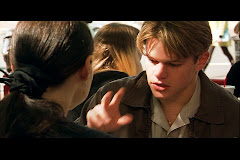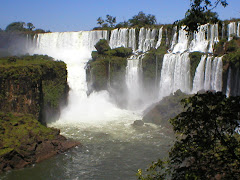Commentary on Professor Prothero’s “Separate Truths” (with apologies for the length.
First of all, I cannot step over the need to express appreciation for Professor Prothero’s daring and well-informed essay in the Globe Ideas section (Sunday, April 25, 2010) – daring in its venture in to the un-vogue territory of recognizing and embracing differences (and in particular religious differences) and obviously well informed from the Professor’s years of study. Furthermore, I admit to not having read the full text from which his comments are taken. But unfortunately, from my personal perspective as a novice student of theology, the article fails on both the front end assumptions and on the concluding end of resolution.
The Professor points in great detail to the many differences between the world’s religions as the foundation of his argument and produces from that foundation the obviously related concept of their mutually exclusive goals, using as example the differing goals of various sports. Obviously earth’s many peoples and cultures have a plethora of differences. Why for example do roofs on Norwegian houses have a different pitch than those in the Sonoran desert? Why is the attire of the Inuit inappropriate in the Congo basin? Or allowing for the sport analogy, why must one relinquish the ball when tackled in rugby but cling tightly to it in American football, its second cousin?
The questions that might be asked are not how are these sports different in goals and rules, or why do houses and clothing differ, but rather why do humans play sports and games and why do they seek shelter from the elements? Do we as humans share a need to believe in something, and if so how do those beliefs evolve into group think, cultural mores, out-grouping and hate crimes or perhaps in a shared need to find commonality? While the professor sweeps aside Karen Armstrong’s earlier work, A History of God, he might do well in reviewing her more recent deep dive in The Great Transformation.
In this more recent work, Ms. Armstrong ties together not so much the tenets of some major world religions, but rather the socio-political and economic precedents to them. Evolving out of some common threads in world history and founded in what appears to be a universal human need to understand one’s existence, Armstrong makes a more compelling argument for the commonality of the human spiritual quest. The great sages that developed those religions she traces did so in an effort to make sense out of human suffering and tragedy. Our pains, large or small, personal or societal, are differently named (as our sports are) and so, in the dualism that follows defining one thing from another, the courses of action and thought processes that ensue are even more radically differing.
Humans appear to have a shared need to understand their existence, how they got here and to what end they are moving. Even atheists have an explanation to the why and what of existence (personally I love reading Douglas Adams’ brilliantly articulation of the atheistic point of view). The problem comes not from the religions, theisms and a-theisms, but rather from the very human act of meaning making wherein we all differ radically. Our brains have evolved to make sense out of the myriad stimuli bombarding us at each instant and to relegate some to meaning and others to irrelevance. The bulk of that happens through what psychologists call associative learning – “this is like that.” Since no two people (not even identical twins) share exactly the same perspective, our meaning-making begins to differ from the time we are born (and some would contend even before that). Thus when these somewhat to wildly differing meaning structures encounter human difficulty and the ensuing need to make sense of it, it is a wonder that there are not 6 billion religions on our planet.
But we talk to each other, and something as important and central to life as why we are here and where we are going frequently comes up, eventually rolling up to some commonly held themes as “our beliefs” – and the rest, as they say, is history. Additionally, along with the evolution of these beliefs and themes, our moral/ ethical processes also develop (some more than others). The Professor would no doubt be aware of the work of James Fowler, who outlines the stages of spiritual development from the undefined to universalized (an understanding level few ever get to). Parallel to the work of Kohlberg and Perry, Fowler found that development may stall out at some level, and as Perry found, under duress or challenge, people often regress to a lower level of understanding such as fundamentalism. There, life is simple once again – there is a right and a wrong and everything fits neatly into the package. To the fundamentalist, right comes from god and anything diverging from that is false, and therefore comes from the devil. Combining these aspects of human psychology with the evolutionary history of religions produces a vast array of religions and belief structures not only about morals, ethics and their source, but about who is or is not included and excluded from the defined principles and goals.
And to what point should this argument take us? Professor Prothero correctly points out that denying the differences is both ignorant and insulting. Whether fundamentalist or enlightened universalist, spiritual beliefs are closely held and sacred to the holder. Disavowing those individual beliefs, whether by exclusionary practices or pseudo-intellectual feints toward inclusiveness, is not just ignorant, it is morally wrong. Trying to make things fit neatly into our pretty little ethnocentric packages has virtually destroyed the environment, raped the land, justified wars and genocide – you name it. History should have provided enough evidence that such beliefs and practices don’t work.
But there is a pluralism that embraces diversity that may be a step beyond Dr. Prothero’s end point (which may perhaps be included in his book). Diversity requires our embracing differences as other component parts of the human condition. Not including the perspective of some Aboriginal villager in a world economic forum is as blind as not accessing the creativity of a person living with a mobility handicap when discussing a corporate strategic plan. Religious diversity is not adopting the “New Jerusalem” ideal that Stackhouse espouses, but rather making room at the table for every perspective in discussing our plight.
The problems of today’s world are more complex than ever and some might contend, are foretelling our demise. Unless we recognize that the solution is the unwieldy and awkward coming together of human perspectives, we may not be able to do anything about it. Adam Kahane outlined the process of creating resolutions to the complex and difficult problems presented at the Mont Fleur (South Africa) and in the Vision Guatemala discussions – both of which sought to include representatives of all elements in the discussions. Because religions play such a central role in the actions of peoples around the planet, they may (some would say should) have a role in working toward both a global peace and environmental survival. We as a people are suffering, and suffering, as Armstrong points out in her concluding paragraph of The Great Transformation, “shatters neat, rationalistic theology.” We need to let the pain of genocide in the Middle East, attacks like 9/11 (resulting in our retaliatory warring), and the suffering from natural disasters sink in and shatter the self-righteousness of exclusionary belief systems. We need compassion; a compassion that accepts others’ individual differences and that has room for differing beliefs. We need to follow the lead of Tony Blair and others who are attempting to call the religions of the world together in inclusive mutual respect (for our many differences) and, placing all the guns and knives on the table, begin the process of open and healing dialogue – trusting that somewhere in their respective practices love and compassion have a voice.
 Listen to how Rilke describes it in his poem The Man Watching: "If only we would allow ourselves to be dominated, as things do by some immense storm, we would become strong too, and not need names." And the modern mystic poet, David Whyte puts it this way in Working Together: "We shape ourselves to fit this world and by the world are shaped again. The visible and the invisible working together, in common cause to produce the miraculous.
Listen to how Rilke describes it in his poem The Man Watching: "If only we would allow ourselves to be dominated, as things do by some immense storm, we would become strong too, and not need names." And the modern mystic poet, David Whyte puts it this way in Working Together: "We shape ourselves to fit this world and by the world are shaped again. The visible and the invisible working together, in common cause to produce the miraculous.

.jpg)


